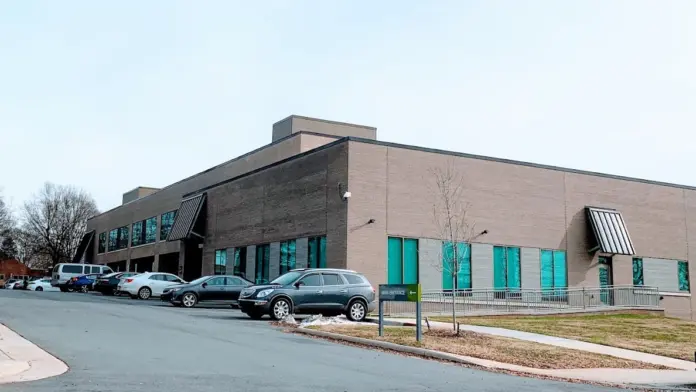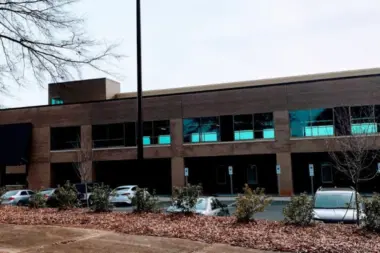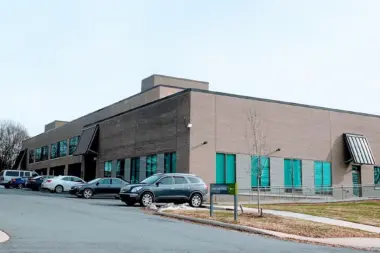About Daymark Recovery Services – Forsyth Center
Their intensive outpatient program (IOP) allows you to live at home as you attend treatment. You’ll participate for at least nine hours weekly with a minimum of three programming hours daily. There are also community programs as well, so you’ll spend time getting to know your neighbors again. That way, when you wrap up the program, your community will be your support network so you don’t relapse.
There’s also a special track for kids that includes routine outpatient (OP) care and home health services. Your kids might have the chance to stay home while they’re being treated. It’ll make the process more comfortable for ’em.
When you sign up, you’ll have the chance to dive deep into your addiction with proven interventions. Individual, group, and family counseling, recovery support groups, screenings, medication assisted treatment (MAT), case management, and life skills training are available to help you reach your recovery goals.
One of the things that caught my eye about them is their focus on personalized care. As you progress each month, they update your plan. This is an excellent feature as your treatment plan adapts and continues to push you toward further growth.
Another standout feature is how accessible they make treatment. They offer advanced access assessments and walk-ins to simplify the process. You can also call their 24-hour crisis hotline at any time to receive support and guidance.
Along with helping you succeed in recovery, they strive to improve your overall wellness. You’ll have support from a multidisciplinary team to rebuild relationships with loved ones, enhance physical health, gain vocational skills, find employment, and much more.
You’ll benefit from flexible payment options, including private insurance, Medicaid, Medicare, and sliding or discounted fees for eligible clients.
Latest Reviews
Rehab Score
Gallery




Other Forms of Payment
Private insurance refers to any kind of healthcare coverage that isn't from the state or federal government. This includes individual and family plans offered by an employer or purchased from the Insurance Marketplace. Every plan will have different requirements and out of pocket costs so be sure to get the full details before you start treatment.
Self-pay involves paying for treatment out of your own pocket. You can use savings or credit, get a personal loan, or receive help from family and friends to fund your treatment. If you don't have insurance or your insurance plan doesn't cover a specific program, self-pay can help ensure you still get the care you need.
Medicaid is a state based program that helps lower-income individuals and families pay for healthcare. Medicaid covers addiction treatment so those enrolled can use their coverage to pay for rehab. When a program accepts Medicaid the client often pays very little or nothing out of their own pocket.
Medicare is a federal program that provides health insurance for those 65 and older. It also serves people under 65 with chronic and disabling health challenges. To use Medicare for addiction treatment you need to find a program that accepts Medicare and is in network with your plan. Out of pocket costs and preauthorization requirements vary, so always check with your provider.
Addiction Treatments
Levels of Care
Clients who are exiting detox or stepping down from intensive inpatient care typically transition directly into outpatient treatment. Outpatient programs are designed to allow clients to either re-enter or remain in their communities while receiving robust, personalized care. Many facilities offer evening, night, or weekend services to accommodate clients' home and work schedules. The most common outpatient treatment modalities include psychotherapy, recovery-focused life skills training, and medication assisted treatment (MAT).
Rehab aftercare programs offer a complete continuum of care for clients in the maintenance phase of recovery and are predicated on the idea that addiction disease is a chronic condition prone to relapse and warranting continuing care. Clients collaborate with their care team and case manager to access the specific rehab aftercare services they need to promote their sustained sobriety. Peer coaching, relapse prevention services, career counseling, and 12 step program induction are common in these programs.
Intervention services can provide customized interventions tailored to the needs of the individual and family. An intervention specialist can design and conduct a drug intervention in North Carolina that encourages the individual to enter treatment in a non-coercive manner. The specialist will meet with the family to plan the intervention, then provide expert insights to guide the process and appropriate follow-up care.
Often used as a "step-down" option after you've completed a residential or inpatient program, the partial hospitalization program (PHP) typically involves a minimum of 20 hours of treatment per week for approximately 90 days. Programs offer structured programming that includes relapse prevention, medication management, and behavioral therapy services. Insurance coverage for PHP treatment varies among insurance providers.
Treatments
In North Carolina, dual-diagnosis rehabs offer comprehensive care for individuals facing both mental health and substance abuse challenges. These specialized facilities integrate evidence-based therapies such as cognitive-behavioral therapy (CBT), dialectical behavior therapy (DBT), eye movement desensitization and reprocessing (EMDR), and experiential therapy to address both aspects of your well-being. By taking a holistic approach to co-occurring disorder treatment, you are dramatically improving your odds of long-term sobriety.
Programs
Adult rehab programs include therapies tailored to each client's specific needs, goals, and recovery progress. They are tailored to the specific challenges adult clients may face, including family and work pressures and commitments. From inpatient and residential treatment to various levels of outpatient services, there are many options available. Some facilities also help adults work through co-occurring conditions, like anxiety, that can accompany addiction.
Young adulthood can be an exciting, yet difficult, time of transition. Individuals in their late teens to mid-20s face unique stressors related to school, jobs, families, and social circles, which can lead to a rise in substance use. Rehab centers with dedicated young adult programs will include activities and amenities that cater to this age group, with an emphasis on specialized counseling, peer socialization, and ongoing aftercare.
Clinical Services
Group therapy is any therapeutic work that happens in a group (not one-on-one). There are a number of different group therapy modalities, including support groups, experiential therapy, psycho-education, and more. Group therapy involves treatment as well as processing interaction between group members.
In individual therapy, a patient meets one-on-one with a trained psychologist or counselor. Therapy is a pivotal part of effective substance abuse treatment, as it often covers root causes of addiction, including challenges faced by the patient in their social, family, and work/school life.
Amenities
-
Private Setting
Staff
Billy R. West, Jr, MSW, LCSW
President & CEO
Michelle Ivey, MSW, MHA, LCSW, CSWM
Chief Program Officer
Alan Waller, CPA
CFO
Jerold Greer
CIO
Dr. Elizabeth Pekarek, MD
Medical Director
Dr. Philip Nofal, MD, JD
Medical Director
Deidra Cook
Strategy and Analytics Director
Dr. Lisa Brandyberry, Ph.D.
Chief Program Officer-Facility Based Crisis
Contact Information
650 Highland Ave
Suite 100
Winston-Salem, NC 27101